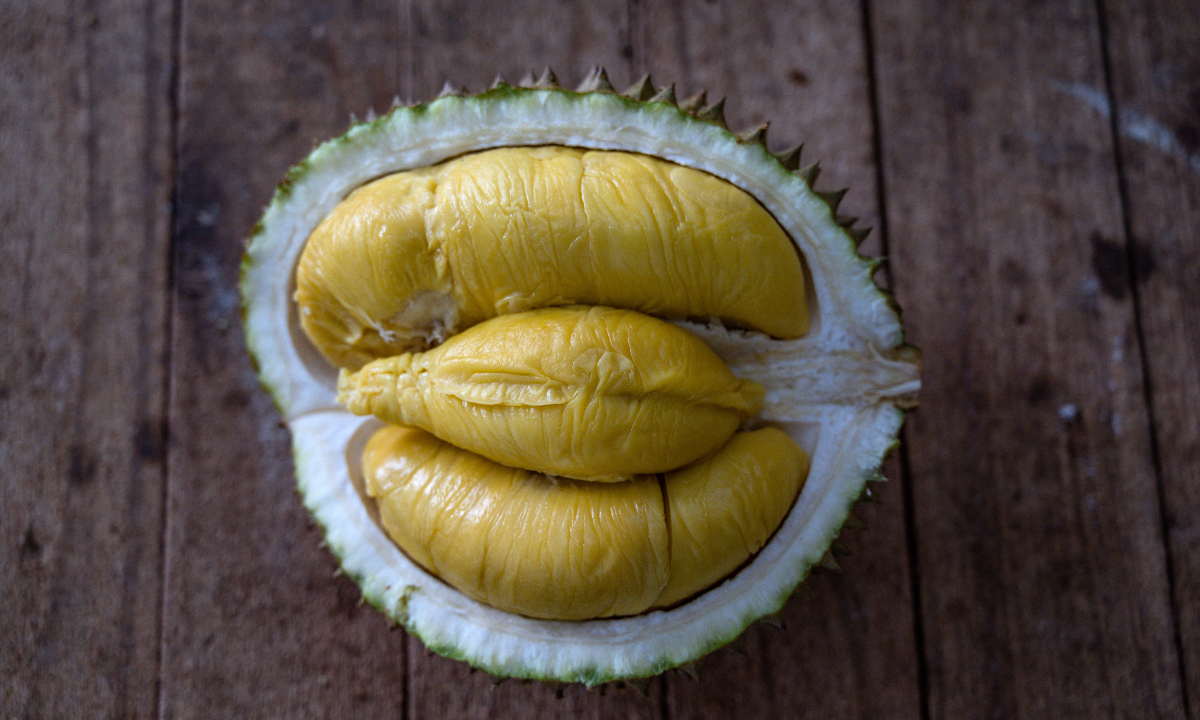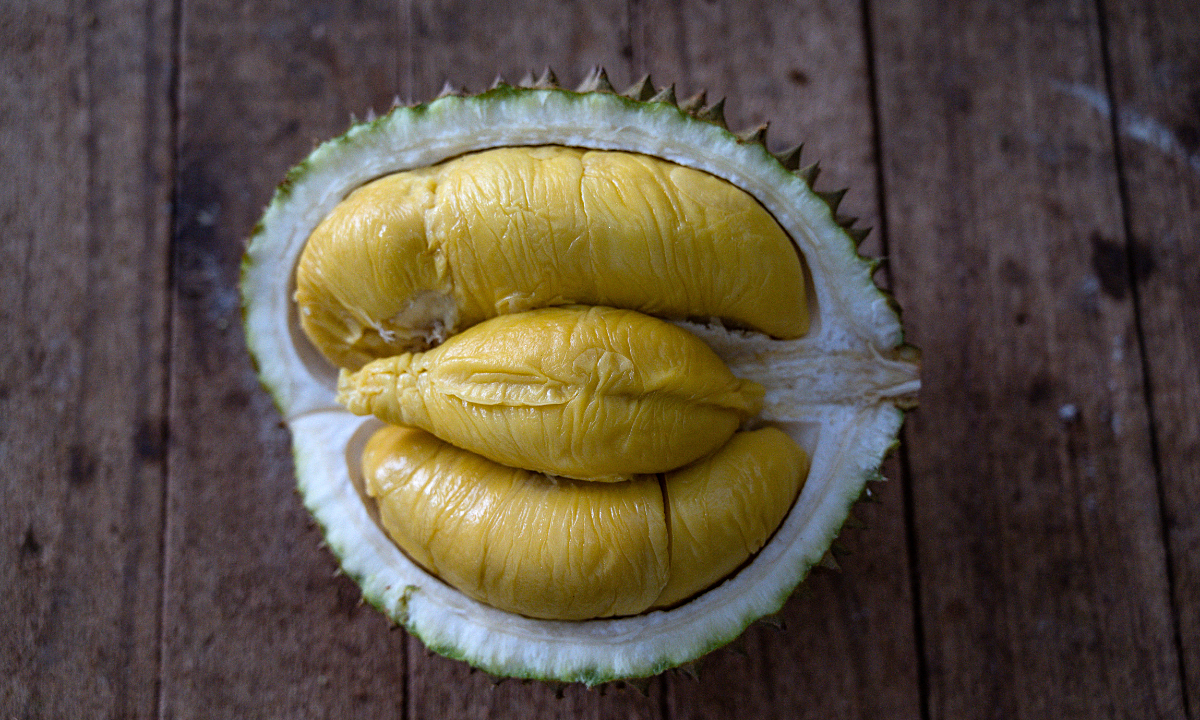Exports of durians from Malaysia to China are expected to increase by 15% to 20% this year due to high consumer demand, even though they face some difficulties because of adverse weather conditions.
As stated by Loh Wee Keng, the chairman of the Malaysia Chamber of Commerce and Industry in China, the demand from Chinese consumers for high-end types such as Musang King and D24 remains higher than the available supply.
“Despite the heavy rainfall in Malaysia leading to premature fruit drops, I anticipate that the total export volume for this year will increase by 15% to 20% from the previous year,” he stated to the government-run media outlet.
Bernama.

|
|
A durian was spotted at a store in Kuala Lumpur on July 8, 2020. The image was captured by AFP. |
Loh highlighted that the premium Grade A Musang King, a distinctive cultivar predominantly produced in Malaysia, currently sells for $7.12 per kilogram at farms. During the off-season, prices may soar over two and a half times higher.
In the previous year, China imported $212 million worth of durians from Malaysia. Despite having exported durians to China since 2010, Malaysia secured a more significant position in this sector when both nations finally inked a specific agreement regarding these fruit imports last year. This new pact enabled Malaysian suppliers to capture an even larger portion of what is now recognized as the globe’s biggest durian market.
Traditionally, Thailand has been the largest exporter of durians to China, whereas Malaysia currently shows little sign of aiming to displace the leading suppliers.
Loh stated that we are not in competition with Thai durians since price and quality are entirely distinct issues, highlighting that Thailand’s Monthong durian usually has a lower cost than the high-end Musang King variety.
He further noted that we also compete with kiwis, cherries, and Japanese produce like strawberries and grapes.
Preserving the authenticity and branding stands as one of Malaysia’s key priorities within its export strategy.
Musang King variety.
“Some traders incorrectly label kampung durians and pass them off as Musang King to increase their profit margins. This practice is harmful,” Loh stated, emphasizing that the primary emphasis should be on informing Chinese consumers about the distinctions between Musang King and other types of durians.
Regarding the attempts to grow Musang King in China’s Hainan Island, Loh mentioned that the outcomes do not meet the quality benchmarks set in Malaysia.
“The initial enthusiasm soon waned. The flavor differs because of the distinct soil and weather conditions. I had a friend who attempted to grow it locally as well, but without success. The Hainan version of the Musang King can’t substitute for the original from Malaysia,” he noted.


Leave a Reply